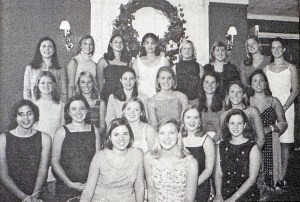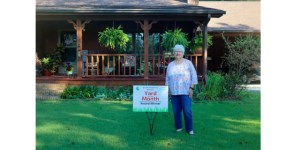Liz Swafford: Waste less by recycling more
Published 11:27 pm Tuesday, July 16, 2013
Imagine a water bottle that dreams of becoming a pair of jeans, a steel can that hopes to someday be transformed into a bicycle or a plastic bottle that believes that, one day, it could become a park bench. These are some of the many destinies that could be fulfilled if more Americans took time to do one thing: recycle.
Trending
A new public service advertising (PSA) campaign introduced by the Ad Council and Keep America Beautiful (KAB) on July 11 aims to inspire the nearly two in three Americans who do not recycle regularly to make recycling a part of their daily lives. Despite increased visibility of public recycling receptacles and increased curbside programs, levels of recycling remain low at less than 35 percent.
The average American generates 4.4 pounds of trash per day and recycles or composts only 1.53 pounds. Think of all the jeans, bicycles and park benches that could be produced if all of that was recycled instead. As a whole, the United States produces approximately 250 million tons of trash each year and recycles and composts just more than 87 million tons of this material, according to the U.S. Environmental Protection Agency.
The Ad Council first partnered with KAB to address the issue of littering more than four decades ago. The result was Iron Eyes Cody — “The Crying Indian” — one of the most iconic advertising campaigns in American history.
The new PSAs have a different goal, but one that is just as important: to waste less by recycling more. Our “trash” could go on to live whole new lives and serve a valuable purpose, if only more people would give it a chance.
There’s plenty of room for increased recycling, even in the four traditional recyclable categories of paper, plastic, glass and metal. Recycling is the process of taking an item at the end of its useful life and using all or part of it to create a new product. For example, plastic bottles that are recycled can take the form of new benches, carpeting, clothing and other plastic containers. Aluminum beverage cans that are recycled come back to store shelves as new beverage cans in as little as 60 days.
Visit www.IWantToBeRecycled.org to get a behind-the-scenes look at how trash can be transformed through recycling, to debunk common recycling myths and to find details about recycling locations near you. You can also find out how to give garbage a new life or learn how many times an aluminum can can be recycled into a new aluminum can by following our conversation on Twitter with the hashtag #berecycled or like Keep America Beautiful on Facebook.
Trending
Liz Swafford is the recycling and education program coordinator for the Dalton-Whitfield Solid Waste Authority. Have questions about recycling in Whitfield County? Call (706) 278-5001 or email lswafford@dwswa.org.





